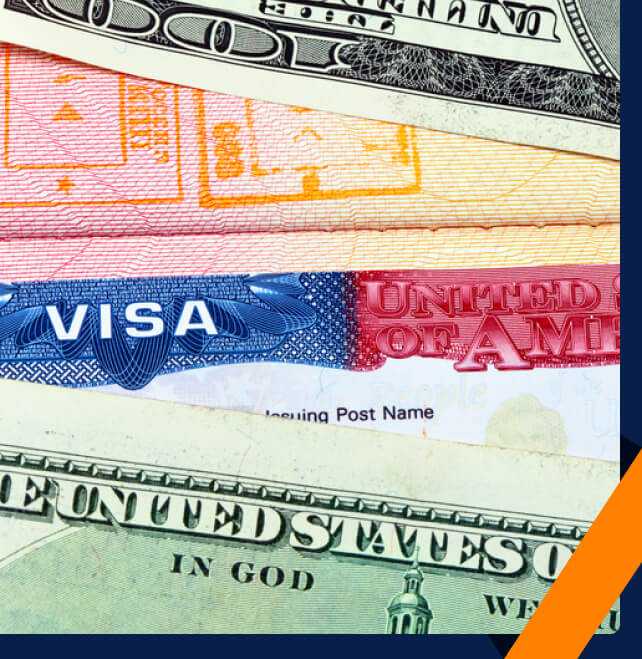Laredo TX Business Immigration Attorney: Staying Compliant
Running a business in Texas already demands focus, hustle, and no small amount of grit. However, things can spin off course fast when immigration issues enter the picture. One misstep can cost you time, money, or both.
Laredo sits at a unique crossroads—rich in opportunity but tightly tied to U.S. immigration law. For business owners here, compliance isn’t just red tape; it’s part of your playbook for survival and growth. Every visa, petition, or work permit must be handled with accuracy and timing.
This article is your roadmap to staying compliant. It covers investor visas, employer rules, hiring foreign workers, and PERM labor certifications. You’ll get clear answers about applications, sponsorships, and what a seasoned Laredo TX business immigration attorney can do to keep you moving forward—legally and confidently.

Understanding Investor Visas
International investors are pouring capital into U.S. businesses in today’s global market. Laredo, as a border city, sees this firsthand. Foreign nationals bring more than money—they bring ideas, growth, and jobs. However, they need the right visa to build legally in the U.S.
Each Investor Visa serves a different purpose. The visa you choose depends on your citizenship, investment type, and whether you want a temporary stay or a path to permanent residence. Filing without proper legal guidance can lead to rejection, delays, or unnecessary scrutiny.
A business immigration attorney in Texas helps investors match their goals to the correct visa type. Whether building a tech company or expanding a manufacturing business, you must ensure your investment fits the rules.
E-1 Visa: Treaty Traders
The E-1 Visa is for foreign traders from countries with commerce treaties with the U.S. This visa supports businesses engaged in substantial international trade. That trade must be mainly between your country and the United States.
To qualify, the trader must be from a treaty country and conduct over 50% of trade with the U.S. This visa is ideal for logistics firms, import/export companies, and service providers. It’s renewable as long as the trade remains active and the business is compliant.
E-2 Visa: Treaty Investors
If you’re investing in a U.S. business, the E-2 Visa might be your best route. It allows investors to live in the U.S. to manage their business operations. While there’s no fixed dollar requirement, your investment must be substantial and “at risk.”
That means funds must already be committed to the business. Passive investments don’t count. It’s great for entrepreneurs launching new ventures or expanding international operations into Laredo.
EB-5 Visa: Immigrant Investors
The EB-5 Visa is a direct path to a Green Card through investment. You must invest at least $800,000 in a targeted employment area or $1,050,000 in other locations. This investment amount changes over time, so it’s important to check with USCIS and consult with an EB-5 Visa lawyer. The investment must lead to the creation of at least 10 full-time jobs for U.S. workers.
This visa is attractive to those wanting permanent residency through business. It’s more complex than other visas, with strict USCIS filing requirements and longer wait times. You’ll need legal assistance to stay compliant through each phase.
TN Visa: NAFTA Professionals
The TN Visa is for professionals from Mexico and Canada under the United States-Mexico-Canada Agreement. It covers job roles like engineers, scientists, and accountants. Unlike other visas, it doesn’t involve a cap or lottery system.
You can renew this non-immigrant visa indefinitely. It’s fast to process, usually within days. It’s a solid option for companies hiring professionals from nearby countries.
H-1B Visa: Specialty Occupations
The H-1B is one of the most recognized employment-based visas. It’s for jobs that require a degree and specific expertise. Employers must file a Labor Condition Application before petitioning USCIS.
There’s a cap on annual H-1B visas, and demand usually exceeds supply. Many applicants go through a lottery. Sponsorship requires a job offer, fair wages, and compliance with employment laws.
Investor visas are tools for business growth, but choosing wrong can cost you your opportunity. Work with a Laredo TX business immigration lawyer to evaluate your investment, goals, and options. When you’ve secured the right visa, the next step is staying compliant once your team is in place.
Employer Compliance In Business Immigration
Business immigration doesn’t end once your foreign worker arrives—it’s just getting started. Once your new team member is on the ground, your real responsibility begins. Employer compliance is the quiet engine that keeps your operation legal and stable. Without it, the risk isn’t just a fine—it’s losing valued employees, facing audits, or worse, getting barred from future sponsorship.
In Laredo, Texas, where companies often rely on international talent, getting compliance right is more than just good practice—it’s business-critical. Whether you’re running a freight company, medical clinic, or start-up, hiring foreign workers without understanding your legal duties can put everything at risk. The rules are strict, and government oversight is increasing.
But there’s good news—compliance doesn’t have to be overwhelming. A Laredo TX business immigration law firm can help you understand what needs to be done, how often, and what systems to put in place. Think of it as locking the doors of your business every night—it’s routine, but it protects everything inside.

Core Employer Responsibilities
Employers must follow several key procedures when hiring non-U.S. citizens, whether for temporary visas like the H-1B or long-term sponsorship through PERM. These include:
Form I-9 Compliance
This form verifies that each new employee is legally authorized to work in the U.S. Employers must inspect original documents and complete the form within three business days of hire. Mistakes or missing information on this form are some of the most common triggers for audits and fines.
E-Verify Participation
Though not required statewide in Texas, many employers use E-Verify to confirm work eligibility electronically. It can help reduce risk and show a commitment to legal hiring practices.
Labor Condition Application Requirements
If hiring under H-1B, you must file a Labor Condition Application with the Department of Labor. This includes confirming wages, job location, and that hiring the foreign worker won’t hurt similarly employed U.S. workers.
Public Access File Maintenance
You’re required to keep certain records available to the public for H-1B workers. These include wage data, job descriptions, and the LCA itself. Failing to maintain this file properly is a frequent audit issue.
Non-Discrimination Policies
Employers cannot discriminate based on citizenship or immigration status. This includes how you advertise jobs, make hiring decisions, or set workplace policies.
Retention & Documentation
Immigration-related documentation must be retained for specific periods—often for years after employment ends. That includes I-9s, visa copies, and immigration filing records.
Audits & Inspections
The Department of Labor, ICE, and USCIS can audit any business at any time. These audits often come with little or no warning. That’s why having internal systems—and legal backup—is so important.
A business immigration attorney can help conduct a mock audit, prepare your HR team, and fix issues before they become real problems. It’s not just about passing inspections—it’s about being ready every day.
Staying Ahead Of The Curve
Immigration law changes frequently, and your compliance approach must evolve with it. From policy updates to form revisions, staying informed is key. Relying on guesswork or outdated info is a recipe for disaster.
Working with legal counsel ensures that your hiring practices stay sharp and compliant. It also lets your HR team focus on building strong teams without worrying about immigration traps.
Compliance may not bring in profits, but it protects the people and systems that do. Compliance isn’t optional for Laredo employers working with international talent—it’s foundational. Now that your internal processes are in order, learn how to bring in the right workers through employment visas.
Navigating Employment Visas
Texas businesses are growing fast and often need skills that are not always found locally. Whether you’re a tech startup or a logistics company in Laredo, hiring foreign workers can be a smart move. But you can’t hire them like you would a local candidate.
To legally employ international talent, you need the right employment visa. Each option comes with forms, fees, government scrutiny, and strict deadlines. Even small errors can cause serious delays or result in visa denial.
Working with a business immigration lawyer helps Texas employers stay on track from the first application to final approval. It’s not just about filing forms—it’s about building a solid case for each foreign worker.

Employment-Based Visa Types
Hiring foreign workers legally starts with picking the proper employment-based visa. Each option has different rules, timelines, and benefits depending on your goals and the worker’s background. Below are the most common visa types Texas employers rely on to bring in international talent.
-
H-1B Visa
Specialty occupations require at least a bachelor’s degree. It’s subject to a yearly cap and lottery. Perfect for engineers, software developers, and healthcare professionals. -
TN Visa
Designed for Canadian and Mexican nationals. It covers specific job categories under the USMCA. This visa has fast processing and no cap. -
L-1 Visa
For transferring employees from a company abroad to a U.S. office. This visa supports multinational companies growing their Texas footprint. -
Green Card Through Sponsorship
Employment-based permanent residency requires labor certification and ongoing documentation. It’s more work upfront but pays off with long-term stability.
Choosing the right visa sets the stage for a smooth hiring process and long-term success. Texas employers can secure the talent they need with proper legal guidance without delays or missteps.
The Employment Visa Process
Once you’ve selected the right visa, the next step is handling the process correctly from start to finish. Each stage has its own requirements, and mistakes can delay or derail everything. Here’s how the employment visa process typically unfolds for Texas employers.
1. Labor Condition Application (LCA)
Required for H-1B visas. The employer must show that they’ll pay a fair wage and not harm U.S. workers.
2. Filing With USCIS
Submit the petition (Form I-129 or I-140) to U.S. Citizenship and Immigration Services. Processing can take weeks to months.
3. Visa Interview Or Adjustment Of Status
The employee either applies at a U.S. consulate abroad or adjusts their status if already in the country.
4. Receive Work Permit
Once approved, the employee receives legal authorization to work under the visa conditions.
Some common pitfalls to avoid are:
- Misclassifying job roles.
- Skipping required public notices.
- Underpaying employees based on Department of Labor wage guidelines.
- Failing to amend petitions when job duties change.
Employers who get immigration help early avoid unnecessary delays. A solid petition leads to fewer questions, less back and forth, and smoother approval.
Employment visas fill today’s needs, but many business owners want to keep talent around. That’s where PERM labor certification and Green Card sponsorship come in.
PERM Labor Certifications: A Gateway To Employment-Based Green Cards
When temporary visas no longer cut it, employers often sponsor foreign workers for permanent residency. That process starts with a PERM Labor Certification. It shows that you tried to hire a U.S. worker but couldn’t find a qualified one.
The Department of Labor takes this step seriously. Every detail matters, from where you post the job to how you write the job description. One typo or timeline mistake can push your case back by months.
A business immigration lawyer helps employers plan each step—from wage determination to final filing. That kind of support matters in Laredo, Texas, where cross-border hiring is common.
Below are the steps to get PERM certified:
1. Define The Job.
Choose a title, wage, and job duties. These details must match Department of Labor standards and your actual needs.
2. Recruitment Campaign.
Advertise the job in newspapers, online, and with workforce agencies. Save proof of each posting.
3. File ETA Form 9089.
Once the recruitment phase ends, file the PERM application. It must be 100% accurate and submitted electronically.
4. Await DOL Review.
Processing takes months. Audits are random but common. Delays happen often without legal support.
Recruiting, advertising, and legal fees vary. Employers also pay filing fees and may need to cover additional costs if the worker is abroad. Most cases take 12–18 months from start to finish.
Getting labor certification is like planting a seed. It takes time, planning, and paperwork—but it results in a long-term asset for your business. When done right, your foreign worker can get a Green Card and remain with your company for the long run.

Work With A Laredo TX Business Immigration Attorney
At Immigration Lawyer Laredo TX, we bring focus, energy, and compassion to every business immigration case. We’ve helped countless employers, investors, and entrepreneurs stay compliant and grow in Texas. Our lawyers offer tailored legal counsel for E-2, EB-5, TN, L-1, and H-1B visas.
From PERM labor certifications to visa renewals, our immigration help is hands-on and reliable. Lozano Law Firm understands the stakes—and works hard to guide you through every petition, adjustment of status, and immigration filing. We believe no question is too small and no process is too big.
Need help today? Don’t wait for a visa denial or audit to take action. Call us, get immigration assistance now, and protect your business before problems appear.
In business immigration, timing, accuracy, and legal compliance can’t be left to chance. Whether hiring foreign workers or investing in a start-up, each visa or petition must be handled with care. A trusted business immigration attorney in Laredo TX gives you clarity, confidence, and peace of mind. From employer compliance to Green Card sponsorship, you’ll have someone watching your back.
Real Clients, Real Testimonials
-
Israel Google Client Review
I had an excellent experience with lazano Law Firm The team was professional, knowledgeable, and incredibly supportive throughout my immigration process. They took the time to explain every step, answered all my questions promptly, and made a stressful situation much easier to manage. I truly felt they cared about my case and worked hard to ensure everything was done properly and efficiently. I highly recommend them to anyone needing immigration assistance. Thank you for your outstanding service!
Read more -
Clarissa Gaytan Google Client Review
This team was excellent to us, they are very prompt and organized. If we were missing something they would notify us that same day. If I had questions they would reply quickly to all my emails. All around very helpful and professional group.
Read more -
Felix Sanchez Google Client Review
As I've worked with lozano law firm they been sooo much help guiding us helping us understand from sheila from maribel from ms gloria and josue they been sooo much help helpful so dedicated to help me and my family to reunite thank u guys from the bottom of my heart.
Read more -
Kara Wilson Google Client Review
Absolutely fantastic! I could not have asked for a better experience. Mr. Lozano was incredibly competent, kind, supportive and professional. He went above and beyond to understand our case and help us. I highly recommend him!
Read more -
Victor Ramirez Google Client Review
Lozano Law firm Made the process to adjust immigration status so easy. They walked us through everything and Made sure we had all the requirements and were well prepared for the interview. They helped us to have a quick smooth process
Read more -
Uliks Sula Google Client Review
I want to say thank you to lozano office and for sure to the amazing crew they have becouse they are very helpful full and educated on them job so I would say to any one is not point to shop around even because the money because they are the best they would be there for you like how they are for me they care that is the most important for me thank you again 0/10 I would say easy 300% recommend . 😀😀😀
Read more -
Anneke Raaths Google Client Review
The Lozano Law Firm is a great resource for anyone with immigration needs. They were professional, quick, and VERY helpful in guiding me through the process. I really appreciated their ability to send documents through email--safely and securely.
They were great in keeping me updated on any new developments in my immigration case and provided me with help during the more stressful times. I would definitely recommend them and will be using their services again!!
Read more
Contact Our Immigration Lawyer
Contact Us Today For A Free Case Evaluation!
We respect your privacy. The information you provide will be used to answer your question or to schedule and appointment if requested.

